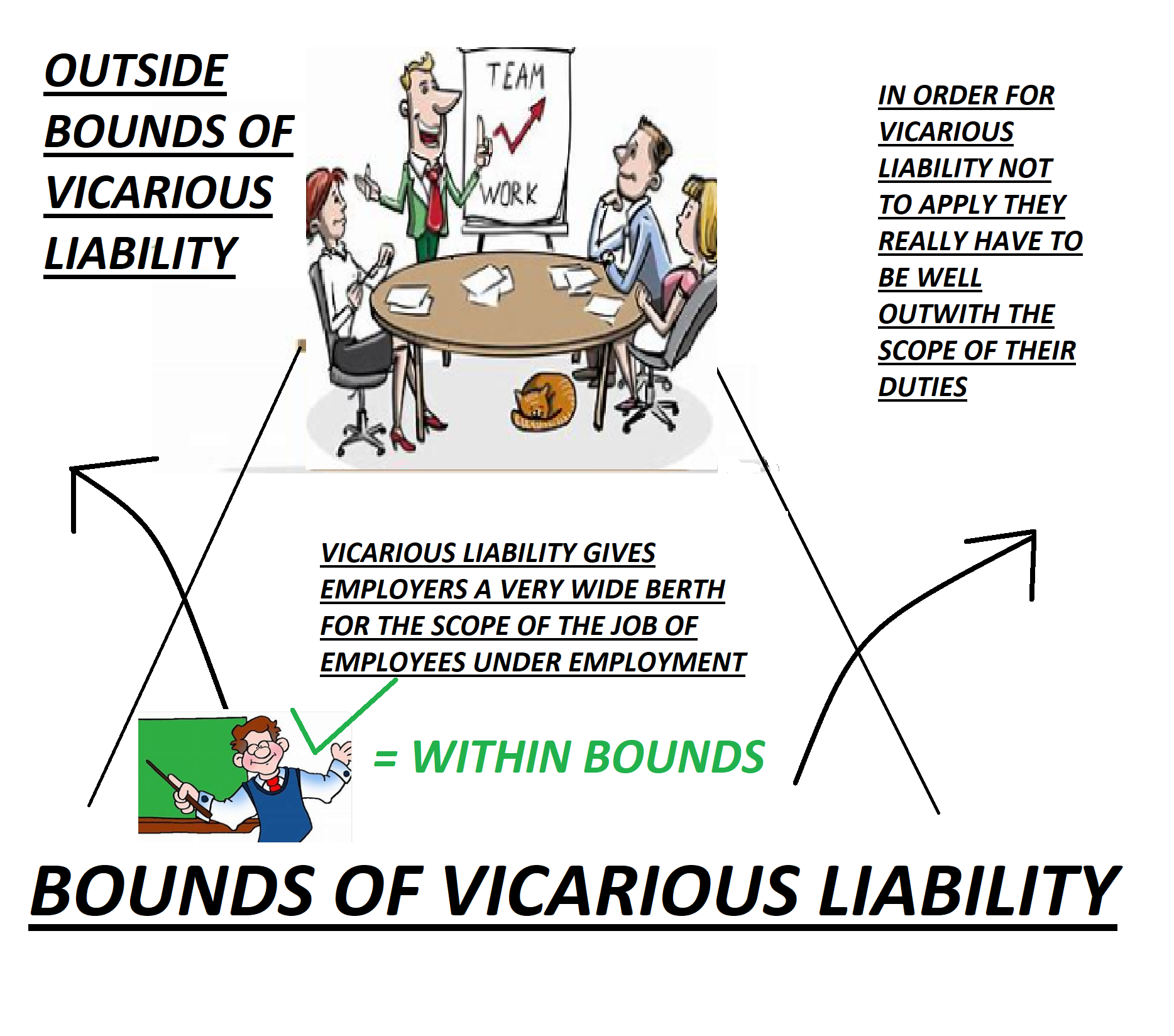Lister v Hesley Hall Ltd [2001] UKHL 22
Citation:Lister v Hesley Hall Ltd [2001] UKHL 22
Rule of thumb:How strictly is vicarious liability for employees interpreted? There is a very broad interpretation given to vicarious liability. It has to be completely separate and totally different from the duties in order to break the vicarious liability connection.
Background facts:
The basic facts of this case were that a support worker in a boarding school was sexually abusing the pupils. The support worker was hired to help the pupils with getting ready etc.
Judgment:
The Court therefore held the school vicariously liable for this because what he did was semi-connected to his duties, and not completely out of keeping with them. This case affirmed the ‘relative closeness’ test for when an employer would be made liable for the actions of an employee. The Court held that if the harassment/crime was carried out by the employee in the nature of the employment, then the employer had to have a proactive system of taking measures to prevent this, not all just reacting when it was presented to them. However, if it was done completely out of keeping with the employment, then vicarious liability would not apply.

Ratio-decidendi:
‘For nearly a century English judges have adopted Salmond's statement of the applicable test as correct. .. It is not necessary to embark on a detailed examination of the development of the modern principle of vicarious liability. But it is necessary to face up to the way in which the law of vicarious liability sometimes may embrace intentional wrongdoing by an employee. If one mechanically applies Salmond's test, the result might at first glance be thought to be that a bank is not liable to a customer where a bank employee defrauds a customer by giving him only half the foreign exchange which he paid for, the employee pocketing the difference. A preoccupation with conceptualistic reasoning may lead to the absurd conclusion that there can only be vicarious liability if the bank carries on business in defrauding its customers. Ideas divorced from reality have never held much attraction for judges steeped in the tradition that their task is to deliver principled but practical justice’, Lord Steyn
Warning: This is not professional legal advice. This is not professional legal education advice. Please obtain professional guidance before embarking on any legal course of action. This is just an interpretation of a Judgment by persons of legal insight & varying levels of legal specialism, experience & expertise. Please read the Judgment yourself and form your own interpretation of it with professional assistance.

